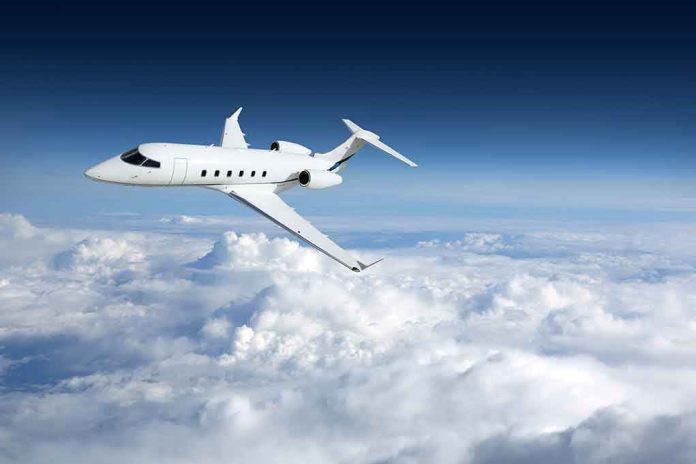
The Trump administration has moved to end China’s unfair aviation advantage by proposing a ban on Chinese airlines using Russian airspace for US-bound flights, finally addressing a competitive imbalance that has handicapped American carriers since 2022.
Story Highlights
- Trump proposes banning Chinese airlines from flying through Russian airspace on U.S. routes
- Chinese carriers gained unfair advantage when U.S. airlines were banned from Russian airspace in 2022
- U.S. carriers report East Coast-China routes barely profitable without Russian overflight rights
- Final order could take effect as soon as November 2025, leveling the competitive playing field
Ending China’s Unfair Aviation Advantage
The U.S. Department of Transportation has issued a proposed order targeting Chinese airlines’ continued use of Russian airspace for flights to and from America. Since March 2022, American carriers have been barred from Russian airspace due to reciprocal sanctions following Russia’s Ukraine invasion, while Chinese airlines maintained access to these shorter, more fuel-efficient routes. This disparity has created substantial competitive disadvantages for U.S. airlines, forcing them to use longer flight paths that increase costs and reduce profitability on trans-Pacific routes.
The proposal specifically targets passenger flights while exempting cargo operations, demonstrating the administration’s focus on addressing the most economically damaging aspects of the imbalance. Chinese carriers given just two days to respond to the proposal, signaling the administration’s determination to act swiftly on this long-overdue correction to an unfair competitive landscape that has persisted for nearly three years.
American Airlines Fighting Uphill Battle
U.S. carriers have struggled to maintain profitable operations on routes to China since losing access to Russian airspace. American airlines report that East Coast-to-China routes have become barely profitable without Russian overflight rights, as they must navigate around restricted airspace, adding hours to flight times and thousands in fuel costs. Meanwhile, Chinese carriers like Air China, China Eastern, China Southern, and Xiamen Airlines continue benefiting from direct routes over Russia, allowing them to undercut American competitors on price while maintaining superior scheduling.
The competitive disparity extends beyond simple economics to strategic concerns about American aviation dominance. U.S. airlines have lobbied extensively against this arrangement, arguing it undermines fair competition and threatens the long-term viability of American carriers in the crucial trans-Pacific market. The aviation sector represents both economic interests and national prestige, making China’s continued advantage particularly galling to American industry leaders who built the world’s most successful aviation network.
Beijing’s Predictable Outrage Over Fair Competition
China’s response has been swift and predictably hostile, with Beijing criticizing the proposal as “groundless and unjustified” while warning of negative impacts on civil aviation cooperation. The Chinese Foreign Ministry claims the restrictions are “not conducive to person-to-person exchanges” and emphasizes China’s supposedly “objective and fair” stance on Ukraine. This reaction reveals China’s expectation that it should benefit from competitive advantages denied to American companies, a pattern consistent with decades of unfair trade practices.
The proposal arrives amid broader U.S.-China tensions over trade, technology, and critical minerals, positioning aviation policy as another tool in economic statecraft. Trump’s willingness to challenge China’s aviation privileges demonstrates his administration’s commitment to defending American economic interests against unfair foreign competition. This move sets important precedent for using regulatory authority to counter geopolitical adversaries who exploit international crises for competitive advantage, something the previous administration failed to address adequately.
Sources:
Trump proposes leveling playing field with China on flights over Russia to and from US
US proposes restricting Chinese airlines from flying over Russia to America
Washington targets Chinese flights via Russian skies amid mounting US-China trade standoff
Trump Administration Proposes Banning Chinese Carriers From Flying Over Russia To The US


